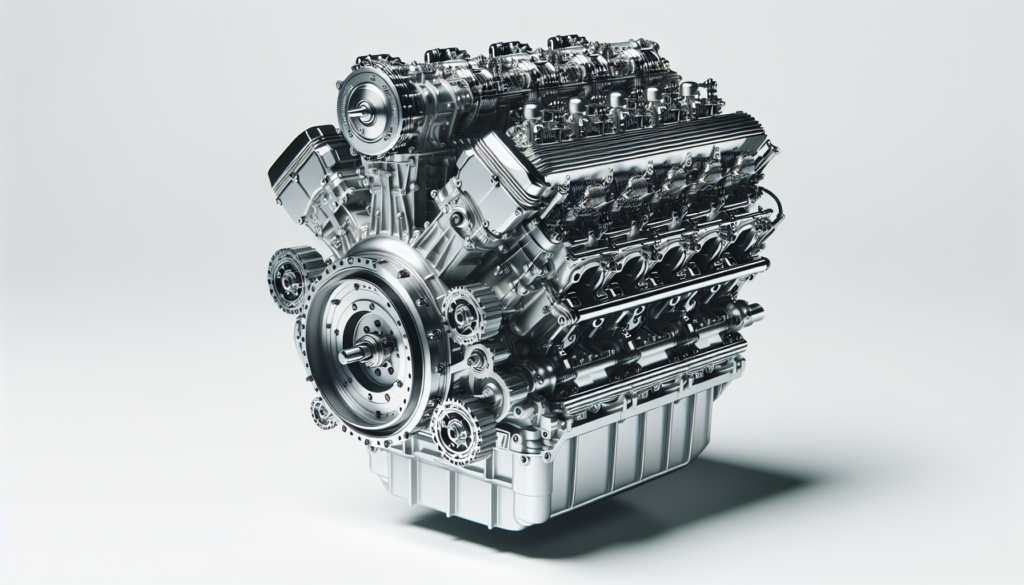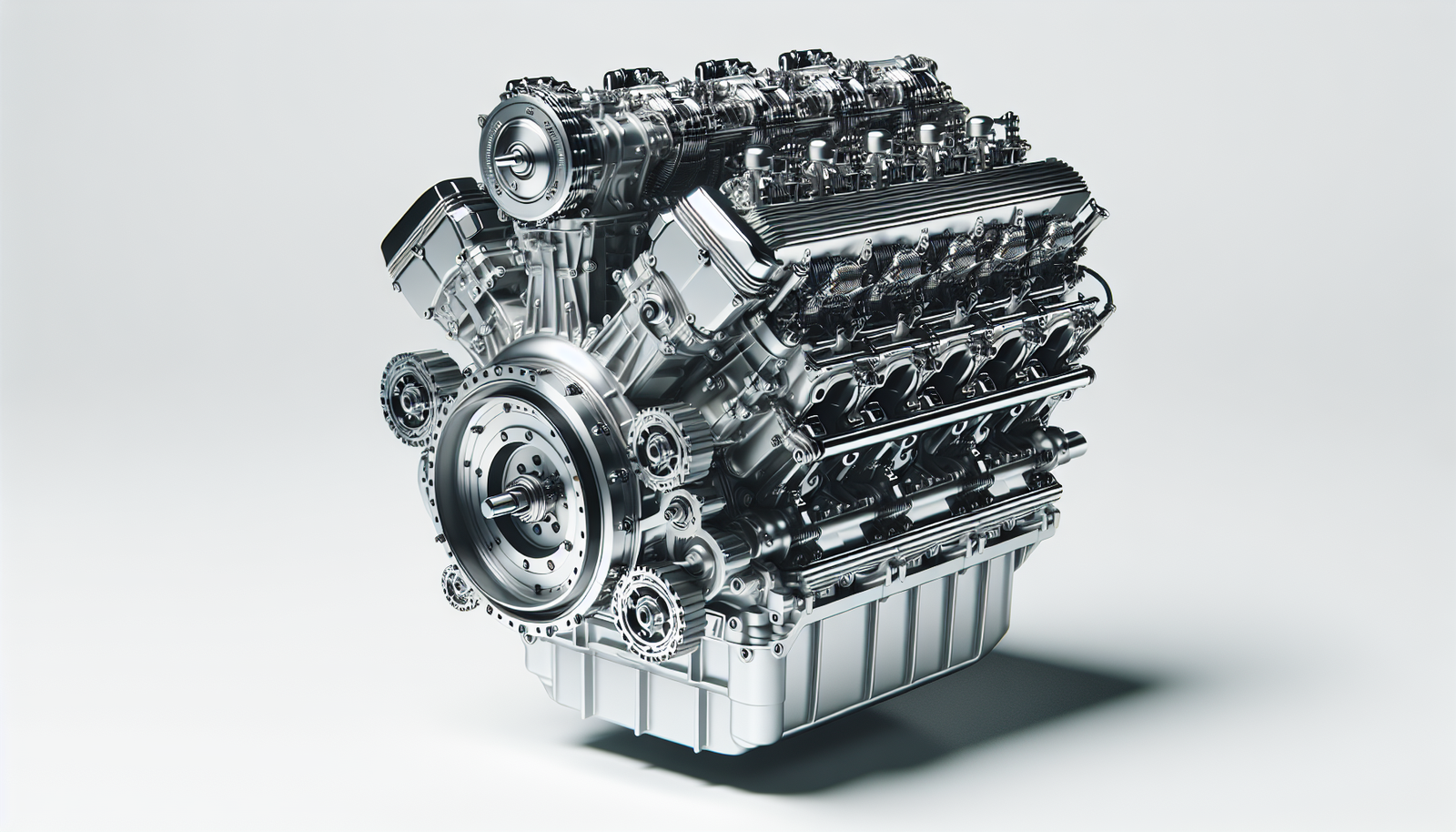Got an interest in water sports and need the right boat engine to maximize your fun time? This is for you. Imagine sailing smoothly on the water with a boat engine perfectly tuned for your favorite water action. “Expert Tips For Choosing The Right Boat Engine For Watersports” is your go-to guide to making these dreams a reality. This article offers you indispensable insights from skilled professionals on how to choose the best boat engine for watersports. With its clear advice, it’s a sure roadmap towards powering your ultimate water sports experience.

Understanding Different Types of Boat Engines
Navigating the sea of boat engine types might feel overwhelming, considering the variety available. But don’t fret! Start by understanding the characteristics of each type.
Comparison between Inboard and Outboard Engines
Your choice between an inboard and an outboard engine can make a world of difference. With an inboard engine, located inside the hull, you gain better balance and stability. This is due to the weight being distributed lower and more towards the center of the boat. On the other hand, an outboard engine, attached to the stern, gives you more space, less noise, and simplicity in steering.
Pros and Cons of Jet Drives
Jet drives push water out in a jet stream to propel the boat forward, unlike traditional propeller systems. The advantages are low draft, meaning you can glide over shallow waters. There’s no external propeller, thus safer for swimmers and marine life. However, they can be less efficient when it comes to fuel usage and are often more expensive initially.
The Usefulness of Sterndrive Engines
A sterndrive engine, or inboard/outboard engine, is a hybrid, offering the best of both inboard and outboard worlds. It has the balance and propeller protection of an inboard, but with better maneuverability akin to an outboard. Although it may require more maintenance, this might be the versatile option you’ve been seeking.
Identifying Your Watersport Needs
Choosing an engine isn’t just about power. It’s about performance suited to your specific watersport needs.
Tailoring Your Engine to Your Preferred Watersport
Tubing, water skiing, wakeboarding or fishing; each activity calls for different engine characteristics. For instance, towing sports demand quick acceleration, while fishing calls for quiet and efficient cruising.
How Engine Choices can Impact Performance
The right engine can optimize your performance. This could mean an outboard for optimal speed in racing or a strong inboard for creating bigger wakes for wakeboarding.
Matching Engine Size and Capacity to Watersport Activities
Engine size should align with your boat’s capacity and the type of water activity. A larger engine might allow for more passengers or better wake creation but could also come with higher fuel costs.
Assessing Engine Power and Performance
It’s essential to understand the metrics of power and performance when choosing your engine.
Importance of Horsepower
Horsepower is a crucial measurement of an engine’s output. Higher horsepower means more speed and the ability to handle more weight. It’s not just about speed, though, but also about not overstressing your engine.
Why Torque Matters
Torque is the power at the engine shaft that turns your boat’s propeller – essentially the twisting force an engine produces. More torque can give you quicker acceleration and greater towing power.
Understanding RPM and Its Impact
Revolutions Per Minute (RPM) is basically the speed at which the engine is operating. Understanding RPM can help you choose an engine that delivers optimal power at suitable RPM levels, thus maximizing efficiency and engine life.
Considering Fuel Efficiency and Economy
Economy in boating isn’t just about money, it’s about the amount of time you can enjoy on the water before refuelling.
Balancing Power with Fuel Consumption
More powerful engines often consume more fuel. Thus, you need to strike a balance between getting the power you need for your watersport activities and the fuel efficiency you desire.
Understanding the Impact of Engine Type on Fuel Usage
Different engine types consume fuel differently. For instance, a jet drive is less fuel-efficient than a propeller-driven system. An outboard engine, particularly a newer model, might provide more fuel economy than an older inboard.
How Watersport Activities Influence Fuel Economy
Sport activity impacts fuel usage. High-speed sports like water skiing consume more fuel than a leisurely fishing trip. Consider your activities and how frequently you partake when choosing an engine.

Factoring in Various Boat Sizes
Remember, boat size matters when choosing your engine.
Relating Boat Size to Engine Size
The larger your boat, the more engine power you need. Bigger engines deliver more horsepower and torque, allowing you to move large vessels efficiently.
Adjusting Expectations Based on Boat Size
With a larger boat, be ready to adjust your expectations. You might have more pace and power, but you’ll likely also have higher fuel costs and more challenging handling.
Choosing the Right Engine for Small or Large Boats
Small boats can typically work fine with small outboard motors. In contrast, a large boat may require more robust inboard motors or multiple outboards for ideal propulsion.
Prioritizing Durability and Maintenance
Durable, low-maintenance engines can make your boating experience much smoother.
The Lifespan of Different Engine Types
Every engine type has a different lifespan. In general, inboards and sterndrives may last longer, but they require more maintenance. Outboards might have a shorter lifespan, but are simpler to service and replace.
Common Maintenance Requirements
Routine maintenance, including oil changes, filter replacements, and cooling system checks, helps ensure your engine keeps running smoothly. Some engine types require more frequent checks and adjustments.
The True Cost of Engine Ownership
Remember, the cost isn’t just the upfront purchase. It includes fuel, ongoing maintenance, potential repairs, and eventual replacement.
Navigating Brand Options and Reliability
Knowing the most reliable brands can save you money and trouble in the long run.
Top Engine Brands to Consider
Mercury, Yamaha, Honda, Suzuki; these are some well-known and trusted boat engine brands. Each has a unique selling proposition that might align with your needs.
Reputed Brands in Watersports
Certain brands excel in watersports. Look into manufacturers known for designing engines for your particular water activity.
Reliability and After-Sales Service Considerations
Not just the engine, consider the company’s reputation for quality, reliability, and customer service. Good after-sales support can save you headaches down the line.
Inspecting Noise and Vibration Levels
Excessive noise and vibration can dampen your water sport experience.
Consideration of Noise Levels in Choosing Engine
Different engine types produce different noise levels. A quieter engine can enhance your boating experience, especially for activities like fishing where tranquillity is key.
Vibration Impact on Rider’s Experience
Excessive vibration can cause discomfort and fatigue for riders, so consider the smoothness of the engine you choose to balance both power and comfort.
Mechanical Noise vs Performance
At times, a powerful engine could be noisier. Decide what’s more critical, performance or peace, and choose accordingly.
Analyzing Resale Value and Longevity
If you plan to upgrade or switch boats, resale value and engine longevity are important considerations.
Why Resale Value is Important
A good resale value means you’ll get a decent return on your investment when you decide to sell.
Factors that Affect Resale Value
Various factors affect resale value. This includes engine condition, brand reputation, model age, and maintenance history.
Longevity of Different Types of Engines
The lifespan of engines varies. Well-maintained engines could last longer, boosting the resale value.
Understanding the Technicalities of Marine Engine Installation
When it’s time to install your chosen engine, here’s what you need to know.
The Process of Installing a Marine Engine
Installation involves mounting the engine, setting up the control system, and connecting the fuel supply and exhaust system. It can be complex, requiring mechanical knowledge and skill.
Potential Complications
Complications can arise during installation, like alignment issues, tight spaces, or incompatible components, which can complicate the installation process and compromise performance.
Why Professional Installation is Often Necessary
With so many aspects to consider, professional installation is generally recommended. This ensures everything is done right, saving you potential problems later.
Remember, when it comes to choosing an engine for watersports, it’s less about the power and all about the experience you want. So consider carefully, choose wisely, and the sea will indeed be your playground.

